Search Results
Showing results 1 to 20 of 24

Whose Fault Is It?
Source Institutions
In this seismic simulation, learners play a "who-dunnit" game to explore earthquakes.
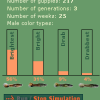
Flashy Fish
Source Institutions
Professor John Endler traveled to Trinidad in the 1970s to study wild guppies. In this activity, learners take part in an online simulation of Endler's work.
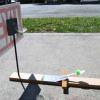
Parabola Basketball
Source Institutions
In this activity, learners build mini-basketball courts and explore the laws of physics. Learners discover that everything you throw or shoot on earth travels in a parabola.

Envirolopes
Source Institutions
In this outdoor activity and observation game, learners hunt for a variety of textures, colors, odors and evidence of organisms in the activity site.

Variation Game
Source Institutions
In this set of outdoor games, learners play the role of monkeys that are trying to get enough resources (food, shelter, and space) to survive.
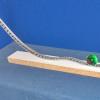
Over the Hill
Source Institutions
In this physics activity, learners construct a small-scale version of a classic carnival game.

Extreme Lifestyles
Source Institutions
In this matching game, learners study the limits of life on Earth to see what other places in the solar system might sustain microbial life.

The Best Dam Simulation Ever
Source Institutions
This online simulation game explores the different consequences of water levels on the Columbia River in the Pacific Northwest.
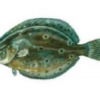
Ocean Home: Swimming Fishes
Source Institutions
In this activity, learners model, on a human-sized board game, how changes in water temperature may affect fish distributions and, ultimately, fisheries.
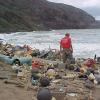
I Am/Who Has: A Litter Matching Game
Source Institutions
In this game, learners match descriptions of marine debris (shoes, batteries, paper towels, etc.) to images of these items.

Stem Cell Differentiation Game
Source Institutions
This game uses a modified Uno deck to review concepts related to stem cell research and diabetes.

The Carbon Cycle Game
Source Institutions
In this activity, learners take on the role of a carbon atom and record which reservoirs in the carbon cycle they visit.
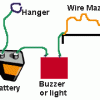
Motor Learning
Source Institutions
In this activity (26th on the page), learners construct an easy-to-build device and test motor learning.

The Carbon Cycle: How It Works
Source Institutions
In this game, learners walk through an imaginary Carbon Cycle and explore the ways in which carbon is stored in reservoirs and the processes that transport the carbon atom from one location to another

The Carbon Cycle: Carbon Tracker
Source Institutions
In this activity, learners play NOAA's Carbon Tracker game and discover ways to keep track of carbon dioxide and other greenhouse gases in the world.
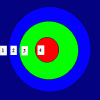
Drop IT!: Depth Perception
Source Institutions
These two activities (4th on the page) demonstrate the importance of two eyes in judging depth.

An Interdisciplinary Deer and Human Population Study
Source Institutions
This activity helps the learner answer the question: "What environmental problems arise due to animal and human overpopulation and what might need to be done to combat these problems?" Learners play a

Great Steamboat Race
Source Institutions
In this outdoor activity, learners race small boats, made of cork, balsa wood, popsicle sticks etc., to investigate the rate and direction of currents in a stream or creek.

Population Study Game: Oh, Deer!
Source Institutions
In this activity, learners model a population of deer and see how the number of deer changes over time.

Cool It
Source Institutions
In this outdoor activity/game, learners use thermometers to simulate how lizards survive in habitats with extreme temperatures.
